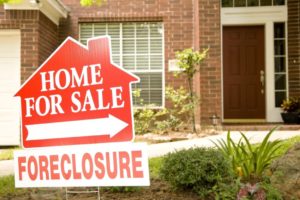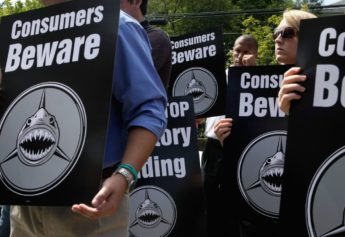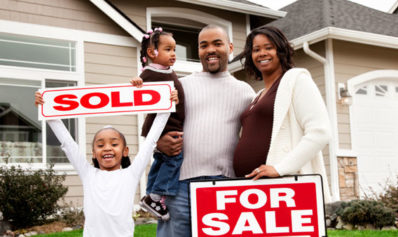
Many Blacks struggle to buy homes following the Great Recession of 2008-2009. (Photo by fstop123/Getty Images).
Having spent much of her adulthood in Section 8 housing, Natasha Jones never imagined that she’d one day become a homeowner. But in March, the 32-year-old closed on a three-bedroom house in Jacksonville, Florida. It took months of repairing her credit and the help of affordable housing advocacy groups to achieve her goal.
“I have kids, and I didn’t want to raise them in government housing,” Jones said. “I wanted something I could call my own.”
The majority of African-Americans believe homeownership is part of the American dream, according to affordable housing group NeighborWorks America. But the wealth gap between blacks and whites, soaring home costs, fewer available homes and the lingering effects of the Great Recession make homeownership an out-of-reach dream for many Black people.
Despite the odds, Jones made it happen. The mother of three makes a modest income working in a facility that serves people with intellectual disabilities but set out to become a homeowner after tiring of telling her children she needed permission from the landlord just to decorate their rooms how they liked. So last fall, Jones pulled her credit report and worked to clean up any blemishes. By January, she had paid off the outstanding debts that lowered her FICO score. And with the help of NeighborWorks, Jones secured funding for a down payment.
“It’s the best feeling,” Jones said of being a homeowner. “It’s indescribable.”
A homeownership survey by NeighborWorks America found that more Blacks value homeownership than whites do. While 64 percent of African-Americans say homeownership is an important part of the American dream, just 60 percent of Americans nationally say the same. Moreover, 14 percent of Blacks say that homeownership is the “most important” part of the American dream, compared to 10 percent of Americans overall and 9 percent of white Americans.
Although Blacks place a high premium on homeownership, they are finding themselves pushed out of their homes from coast to coast in places such as Washington, D.C., and the San Francisco Bay Area.
A new report from Harvard University’s Joint Center for Housing Studies found that blacks are 30 percent more likely not to own their homes compared to whites. As the nation continues to rebound from the Great Recession of 2007-2009, the number of whites, Hispanics and Asian-Americans buying homes is on the rise, but Blacks are taking longer to recover from the economic downturn that wreaked havoc on both the labor and housing markets. The Joint Center for Housing Studies found that the home ownership disparity between Blacks and whites is at a 70-year record high. When the housing market was booming in 2004, almost half of Blacks and 75 percent of whites owned homes. Fast forward 12 years, and the Black home ownership rate has slipped to 42.2 percent while the white home ownership rate is 71.9 percent.
Yul Dorn of San Francisco is among those African-Americans who’ve lost homes in post-Recession America. After their house was foreclosed upon, Dorn and his wife were forced from their home and ended up living in a motel, which the federal government considers to be a form of homelessness.
“The person who bought the house, we lost all of our memories,” Dorn, a pastor, told the Associated Press. “He put the furniture out on the street, and it was just devastating to my family.”
Contacted via email by Atlanta Black Star, Dorn said he didn’t want to relive this difficult ordeal. “My family is in crisis, and I can tell you that there is NO affordable housing in San Francisco, for people of color, and the out-migration is in full effect.”
Blacks in California and the Midwest are least likely to own homes, according to an Associated Press analysis of U.S. Census Bureau statistics. On the other hand, in the South, where Natasha Jones became a first-time homebuyer, Black homeownership is the highest. This is likely because homes in the South on average cost less than they do in a Western state like California, where people of all ethnic backgrounds struggle to find even affordable rental units, let alone buy homes.
In Washington D.C., where an infusion of wealthy newcomers is pushing rents and housing costs up, Blacks are struggling as well. A recent Washington Post poll found that one in five D.C. residents say lack of affordable housing is a problem, and 78 percent of newer residents with annual incomes of at least $150,000 say high-income transplants have created a housing shortage. While 90 percent of D.C. whites believe they’ve benefited from redevelopment in the city, just about half of D.C. Blacks say they agree. Moreover, 47 percent of African Americans fear that homelessness in the District is getting worse.
Alanna McCargo, co-director of the the Urban Institute’s Housing Finance Policy Center, told the Associated Press that the housing market has long been challenging for African-Americans.
“It has always been historically and systemically harder for Blacks, and we were seeing there a little bit of progress, and now we’re back at square one,” she said.

